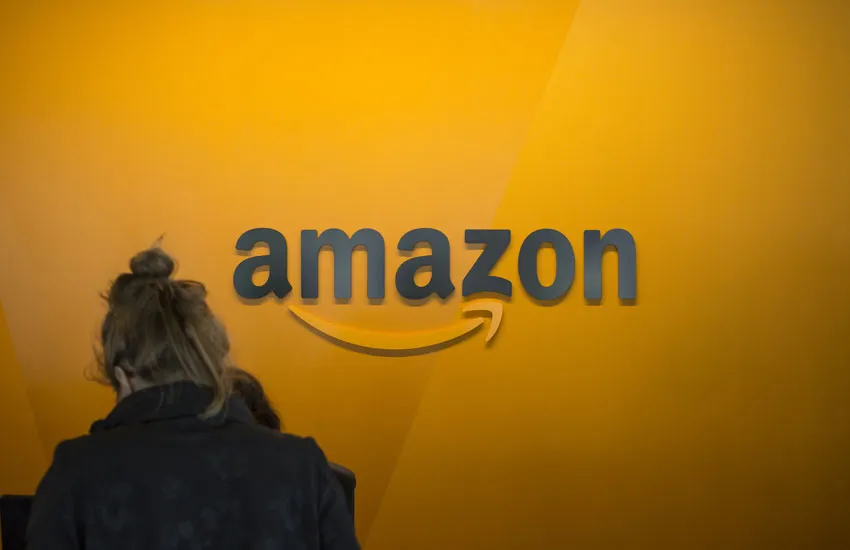-
CENTRES
Progammes & Centres
Location
Despite the impending bilateral trade package, differences over the role of e-commerce platforms continue.

Even as his impeachment saga enters the trial stage in the US Senate, President Donald Trump’s re-election agenda is taking shape. Since foreign policy is at the core of the Democrats’ impeachment call, Trump has doubled down on projecting the efficacy of his America First worldview. A significant development on that front came earlier this month, when Trump signed the US-China Phase One partial trade deal.
In the strategic realm, the Donald Trump administration has followed through on the elevated significance of India in the US’ Indo-Pacific calculus. The same is reflected in the administration’s policy continuity on matters pertaining to defence trade and force interoperability with India. On trade, however, the Trump administration’s ‘America First’ outlook has raised questions over partner nations undercutting Washington financially, whilst free-riding on the US’ security guarantees. In viewing trade balances “as an indicator of the health of a trading relationship”, the Trump administration has thus, also turned its attention to US-India bilateral trade — even though India’s trade surplus with the US is less than a tenth of the Chinese.
As reports emerge about a potential Trump visit to India in February, expectations are trading high on a similar partial trade consensus. However, this trade package is expected to only cater to some low-hanging fruits like that over access of agricultural products and Indian tariff barriers to finished premium goods. Thus, some serious divergences are expected to persist. One such divergence was writ large by the recent Jeff Bezos’ India visit.
Even as he announced another investment of $1 billion into Amazon’s India operations and an ambitious plan to digitise the country’s small and medium enterprises, it drew no praise from commerce minister Piyush Goyal. At ORF’s Raisina Dialogue, Goyal commented that Amazon and Walmart-owned Flipkart are not doing “a great favour” by investing billions into India.
Further, his visit was marked by nation-wide protests by brick-and-mortar retailers who were opposing the steep discounting practices that platforms like Amazon and Flipkart operate with. The protests were primarily led by an association representing around 70 million brick-and-mortar retailers known as the Confederation of All India Traders (CAIT). Ahead of the visit, CAIT announced its plan to mobilise around 100,000 for protests across 300 cities in the country. Bezos countered Goyal’s comment and grievances of the protestors by posting on Amazon India’s homepage a signed letter reiterating his commitment to India. He wrote, “I fall in love with India every time I return here,'' and added that Amazon would sign a Climate Pledge and a promise to meet the Paris Accord ten years early. As part of this his company would eliminate single-use plastic in its logistics network and use electric vehicles. However, this ties into a broader issue plaguing the US-India bilateral dynamic.
In exacting “fair and reciprocal” trade deals with partner nations, the Trump administration’s trade negotiators at the office of the US Trade Representative (USTR), have also brought to the fore some long-standing market access issues with India. Unlike past administrations that underplayed inconsistencies on this front in favour of long-term strategic potentialities with India, the Trump administration has not shied from even adopting punitive measures to exact more favourable terms or coax structural economic reforms by India. Never mind Indian businesses concerns over operating in the American market. Moreover, under the pretext of Trump’s intent to renegotiate trade deals, the USTR, in its negotiations with India, has now added a contention over non-tariffs barriers. For instance, the 2019 National Trade Estimate (NTE) released by the USTR derided partner nations’ barriers to digital trade.
On India, it sought to graft two new contentions over existing ones. First, on “unnecessary barriers to cross-border data flows” or limitations to “foreign digital services”, the NTE construed India’s requirements for data-localisation to be “onerous”. Second, it criticised the “broader restrictions included in India’s draft Personal Data Protection law and draft e-Commerce Policy” as undermining the digital economy. To recap, the referenced e-commerce changes fundamentally limit US e-retailers like Amazon and Flipkart to simply being a marketplace for sellers and buyers — so as to protect local Indian retailers from "predatory pricing”.
However, for fair consideration, it is imperative to also understand Indian concerns over e-commerce giants stonewalling the progress of local small business owners.
India’s anti-trust watchdog, the Competition Commission of India (CCI), has said that it would open an investigation on their business practices of e-commerce platforms Amazon and Flipkart. Earlier this month, the CCI released a report on a study that it conducted on the e-commerce ecosystem in India to understand the emerging impediments to competition in the online retail space.
CCI’s study largely focused on online platforms’ terms of engagement with sellers and how their contracts force them to discount their services and products. The report noted that there is no standard contract that is made available to all business users by a platform and that they were customised to each individual seller. However, sellers said these non-standard contracts were not mutually negotiated and that the commissions charged by online platforms changed arbitrarily.
Despite the insistence of online platforms that participation in their discount schemes was voluntary, sellers complained that they are forced to participate, else lose their visibility in search rankings. The report also noted that online platforms’ goals diverged from that of the sellers. Platforms and their policies, sellers said, are geared towards increasing transaction on the online portals and don’t necessarily align with local sellers’ business goals. This leads to the sellers’ margins getting thinner, leading to a loss of brand equity.
E-commerce services like Amazon and Flipkart work under the marketplace model, i.e. multiple brands and sellers can list on the platform and connect with customers to sell a service or a product. However, nothing stops e-commerce companies from setting up their own private labels and brands, a contention that the CCI’s report raises. It noted that private labels from e-commerce platforms “created an inherent conflict of interest between the platform’s role as intermediary on one hand and as a market participant on the platform on the other.”
It further noted that: “Thus, in essence, the issue that has come to the fore is that the online platforms, when they serve as both a marketplace and a competitor in that marketplace, have the incentive to leverage their control over the platform in favour of their own/preferred vendors or private label products to the disadvantage of other sellers/service providers on the platform.” That’s where online platforms — armed with all crucial data about price, sold quantities, demand to each product, seller and even geography — gain an unfair advantage as a digital intermediary. The report, thus, raised questions on an online platform’s neutrality.
As part of some self-governing guidelines, one of the measures that the CCI recommended was a greater transparency from online platforms on how they use data and information available on the search ranking criteria, collection, sharing of data, and review and rating mechanisms. Contrary to American claims of India being a “sovereignty hawk” on this issue, the American experience with e-commerce led to a similar erosion of the local brick-and-mortar retailers.
Bezos’ announcement of increased Amazon investment in India — monetary and otherwise — as enunciated in his open letter, was not a result of a sudden surge of interest in the Indian market. In face of the broader US-India divergence on e-commerce rules and the subsequent CCI findings, the announcement was meant to mark the crescendo of an extensive campaign that Amazon has been flooding India with, during the past few months.
With a campaign titled ‘We Thank You, India’, Amazon has been attempting to dampen the zero-sum scenario that is brewing between its interests and of those who sign on to sell their products on the Amazon marketplace. In a TVC for the said campaign, a group of small business owners take turns to thank India for their support. Set against a stereotypical Indian background score, a warm hue-montage runs featuring, amongst others, an Assamese Mekhela Chador producer, a Kutchi clay artisan, a Maharashtrian tailor doubling up his store as an Amazon pickup point, and a stand-up comedienne taking stage on an Amazon Prime video clip. Although all direct their gratitude towards the Indian consumer, the subtle messaging in the ad campaign is clear: Amazon has been the wind beneath the wings of those small business and/or service providers.
With the recent announcement of greater Amazon investment in India, it may seem that the zero-sum model which Amazon puts in place for its sellers, may have been taken care of. However, the contention on this issue is only nearing another, more serious, fork in the road. If implemented, CCI’s transparency guidelines for e-commerce firms would definitely assuage some concerns of the sellers on online platforms. However, the government might take a more direct approach and may force disclosure of e-commerce companies' data as part of the Clause 95 of the Personal Data Protection (PDP) Bill which has provisions for the government to appropriate any anonymised and non-personal data. To this effect, a separate expert committee led by former Infosys vice chairman Senapathy Gopalakrishnan has been formed to focus on data governance of community and non-personal data. The committee has been interacting with various technology companies. But, on this provision the PDP Bill might infringe on data collected by the companies which could be construed as their intellectual property.
Hence, it remains to be seen if Amazon’s ‘Great Indian Sale’ and Flipkart’s ‘Big Billion Sale’ also includes the sale of India’s “big billion sovereignty.”
The views expressed above belong to the author(s). ORF research and analyses now available on Telegram! Click here to access our curated content — blogs, longforms and interviews.

Kashish Parpiani is Senior Manager (Chairman’s Office), Reliance Industries Limited (RIL). He is a former Fellow, ORF, Mumbai. ...
Read More +
Shashidhar K J was a Visiting Fellow at the Observer Research Foundation. He works on the broad themes of technology and financial technology. His key ...
Read More +